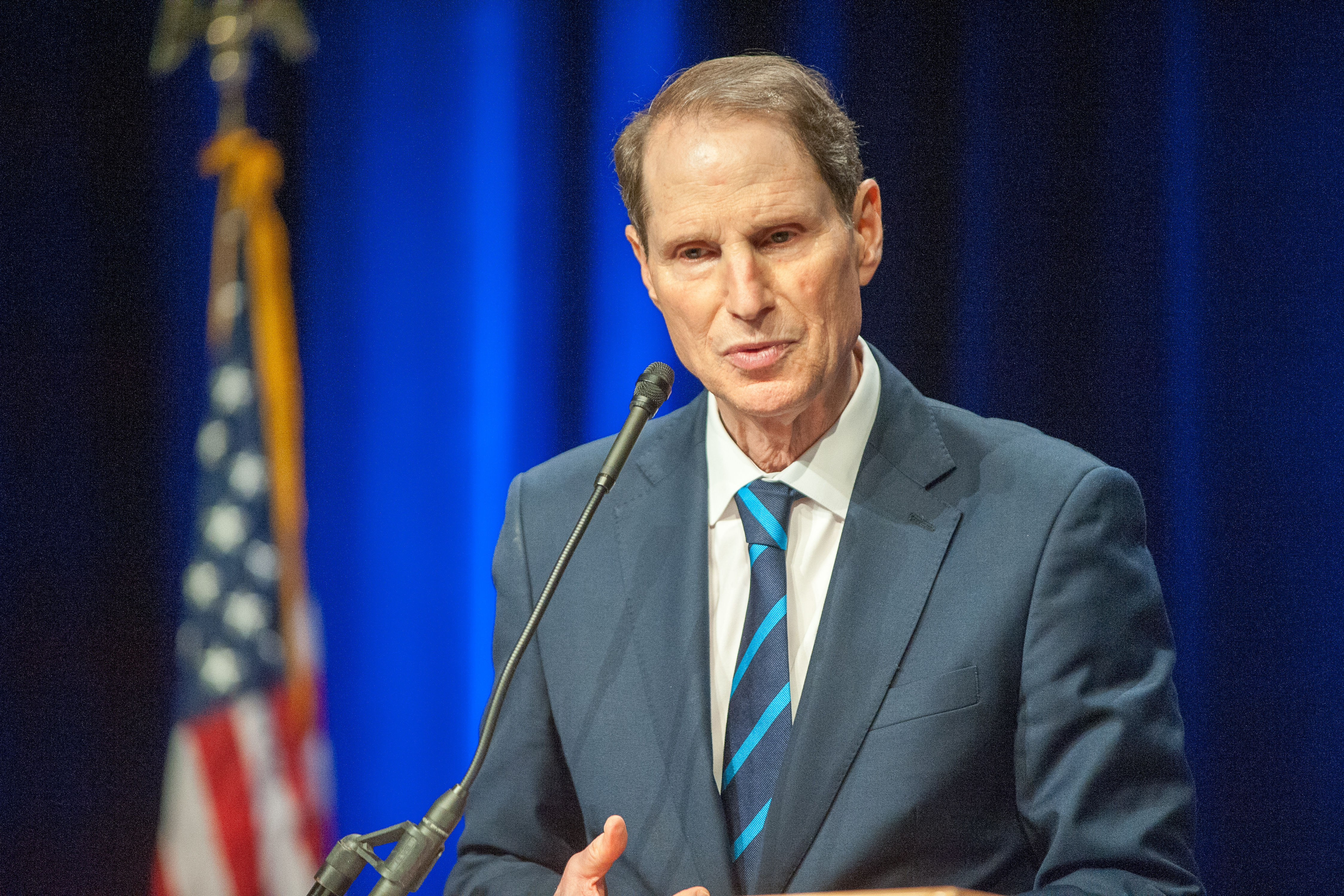A Handy, Quick Guide to Local Candidates in the May 19 Primary

Image: Brian Breneman
Everything may have changed because of coronavirus—but at least in Oregon, elections are business as usual.
Thanks to our status as the first state in the nation to convert to a wholly vote-by-mail system, our primaries are not being postponed, as they’ve been in so many other states. Instead, look for thick voter’s pamphlets to start arriving in the mail any day now.
And hey, you’re running out of other stuff to do—you’ve already binged Tiger King, done all your puzzles, and filled out your census form, right?—so you have time to vote. Here’s Portland Monthly’s very quick election guide to help you figure things out.
The most competitive race for a statewide seat is, bar none, the Democratic primary for secretary of state, which features three reasonably experienced candidates who have all been players in Oregon politics for years. That’s to be expected: Given the significant Democratic voter registration edge in Oregon, whoever wins this nomination is well-positioned to win the primary. And the secretary of state seat is often a stepping-stone to power. (Case in point: Gov. Kate Brown was secretary of state before former Gov. John Kitzhaber’s reputation imploded amid allegations of influence peddling and he resigned.) The secretary of state also oversees elections and congressional redistricting and can audit state agencies, a powerful weapon for public accountability.
Candidates include State Sen. Mark Hass, D-Beaverton, a longtime state lawmaker with a deep background in revenue issues, known as an architect of the Student Success Act, an attempt to channel a billion dollars into public schools, funding that’s now in question due to the pandemic-caused recession that has engulfed the state.
His Senate colleague Shemia Fagan, D-Gresham, is also in the race and is a favorite of the public employee unions who make up the bulk of the Democratic donor base in Oregon. Fagan is known for her progressive views, including her support for rent control.
The third Democrat in the race is Jamie McLeod-Skinner, who is particularly well-known in the Central, Eastern, and Southern portions of Oregon, for running an unexpectedly strong race against Rep. Greg Walden, the Hood River Republican who has represented Oregon’s Second Congressional District for nearly two decades. Of note: McLeod-Skinner is the only candidate in the race who is not accepting corporate donations, and has capped donations from individuals.
As for the GOP, Portland voters will have to sit on the sidelines for their most intriguing race, the primary to succeed retiring US Rep. Greg Walden, a Hood River Republican. Walden reps Oregon’s vast Second Congressional District, which covers Eastern, Central, and most of Southern Oregon. We’re not saying that this race will be over on May 20, but the math there doesn’t look good for Democrats in fall.
That’s why a number of big-name R’s have jumped in, including former gubernatorial candidate Knute Buehler, a favorite of Nike founder Phil Knight, two former state senators—environmentally minded Jason Atkinson from Southern Oregon and Cliff Bentz from Eastern Oregon, who was an architect of the first time Republicans fled the Capitol in order to avoid voting on a cap-and-trade bill. There’s also Jimmy Crumpacker, a political newcomer and scion of a prominent Portland family whose primary residence has been in Portland, but who staked a claim to the district from his family’s ranch in Central Oregon. Crumpacker recently snagged the coveted Oregon Right to Life endorsement, a big prize in a primary that will draw the state’s most committed conservatives.
Oregon’s Fifth Congressional District—on the map, a sideways serif F stretching from the coast to the Cascades and extending up from Salem to poke into Portland’s southern suburbs—has been repped by centrist-leaning Democrat Kurt Schrader the past 12 years. (Like every other rep the Fifth has had since it was created in the 1980s, Schrader saw his marriage end during his tenure.) His challengers this time include some familiar names, though not all necessarily ones known for politics. In the Democratic primary is Blair Reynolds of tiki bar fame (Hale Pele), founder of a company that bottles cocktail syrups. A repeat candidate on the Republican ballot, Joey Nations, made headlines in his 2018 run over his involvement with right-wing street protests in Portland.
For the first time since 2000, when Vera Katz ran for (and won) a third term, the current Portland mayor is running as an incumbent. (In the interim, one-termers Tom Potter and Charlie Hales reached office after enduring a November runoff and opted not to go through the process again, and Sam Adams was hobbled by a sex scandal early in his tenure.) In 2016, Ted Wheeler waltzed into city hall with an easy May primary victory. Will that happen again, or will one of his 18 challengers force a runoff? The most visible campaigners are 2016’s third-place finisher, Sarah Iannarone, and Teressa Raiford (the Don’t Shoot Portland founder’s campaign might be more visible if it had printed two-sided yard signs instead of one-sided). Other names in the running include sustainability consultant Ozzie González, housing developer Randy Rapaport, onetime city charter commission cochair Mark White, reform-minded Grant High grad Cash Blanco Carter, and perennial candidates Bruce Broussard and Lew Humble, both of whom have run for mayor several times already.
Other spicy races are unfolding on the Portland City Council, though one of them is not the race to replace retiring city council member Amanda Fritz. In that contest, Carmen Rubio, the executive director of the Latino Network, has emerged as a heavy favorite, racking up endorsements from a who’s who of Portland-area political luminaries and progressive groups. Other candidates in the race, including school bus driver Ike Harris, naturopath Alicia McCarthy, retiree Mary Ann Schwab, woodworker Timothy DuBois, and nonprofit founder James Autry will need far more cash on hand and far higher profiles to have a chance of stopping Rubio, who would be the first Latinx commissioner elected to the Portland city council.
The plot thickens in the race to fill the rest of the term of much-missed city council member Nick Fish, who died last winter. The race has drawn no fewer than 15 candidates, many of them relatively high-profile. There is former Multnomah County Commissioner Loretta Smith, who is making her second run at a spot on the city council after losing out to Jo Ann Hardesty in 2018; climate justice activist Julia DeGraw; former Metro councilor Sam Chase, who has focused on housing and homelessness issues; tenants’ rights activist Margot Black; former All Hands Raised CEO and Portland School Board member Dan Ryan; and Tera Hurst, a former political staff and director of Renew Oregon, a clean energy-focused nonprofit. With such a strong field, it’s unlikely that any single candidate will emerge with a majority of the vote; get ready for a runoff.
Things really get heated over in position 4, where city commissioner Chloe Eudaly is trying to win a second term and facing challenges from four challengers, notably former Portland Mayor Sam Adams, newly back from Washington, DC, and hoping to mount a city hall comeback; yard signs can also be spotted with increasing frequency for Mingus Mapps, a community organizer and Reed College grad who wants to empower local neighborhood associations, which have frequently tangled with Eudaly. This is another race that may not be decided until November, local political observers say.
Since Kirsten Naito (yes, of that Naito family) dropped out in January, the race to replace retiring Multnomah County District Attorney Rod Underhill is down to two. Ethan Knight, a longtime prosecutor turned assistant US attorney, has the endorsement of his outgoing boss, some former sheriffs, the fire and police unions, and state and county bar association brass. Mike Schmidt, running as a more progressive candidate in the nonpartisan race, has locked up endorsements from more labor unions, current and former governors and local state reps, and a lot of the defense bar.
Regional government Metro has two open seats on its council this election, with the real action happening in the race for the fifth (roughly Forest Park and downtown on the west side, and Portland’s east side north of I-84 and west of 122nd Avenue). The position has been vacated by Sam Chase, who’s running for Portland City Council. Hopefuls for his spot include names we’ve seen before on local ballots: Mary Nolan, a former state rep who ran for city council in 2012, losing in a runoff to incumbent Amanda Fritz; Chris Smith, a longtime transportation activist with loads of planning and sustainability committee credits (Smith also lost a city council race to Fritz, in 2008); and Cam Whitten, another activist and committee vet, who resigned his job as executive director of the Q Center to focus on the campaign.
Expect ballots in the mail around April 29, to be returned by Election Day, Tuesday, May 19. (Postmarks don’t count in Oregon, so the last day to safely mail a ballot is generally considered to be the Thursday before, May 14.) To weigh in in a party primary, voters must be registered with that party by April 28.




